A voyage to Europe in the summer of 1921 gave me the first opportunity of observing the wonderful blue opalescence of the Mediterranean Sea.
C. V. RAMANIt will not be an activity in which all people can participate.
More C. V. Raman Quotes
-





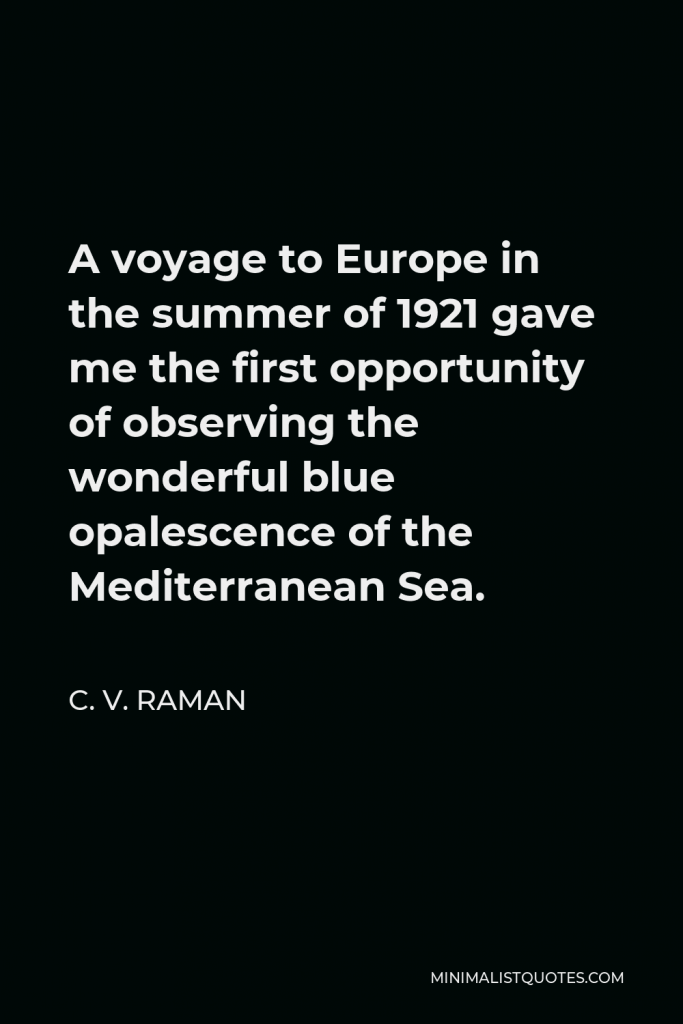

-





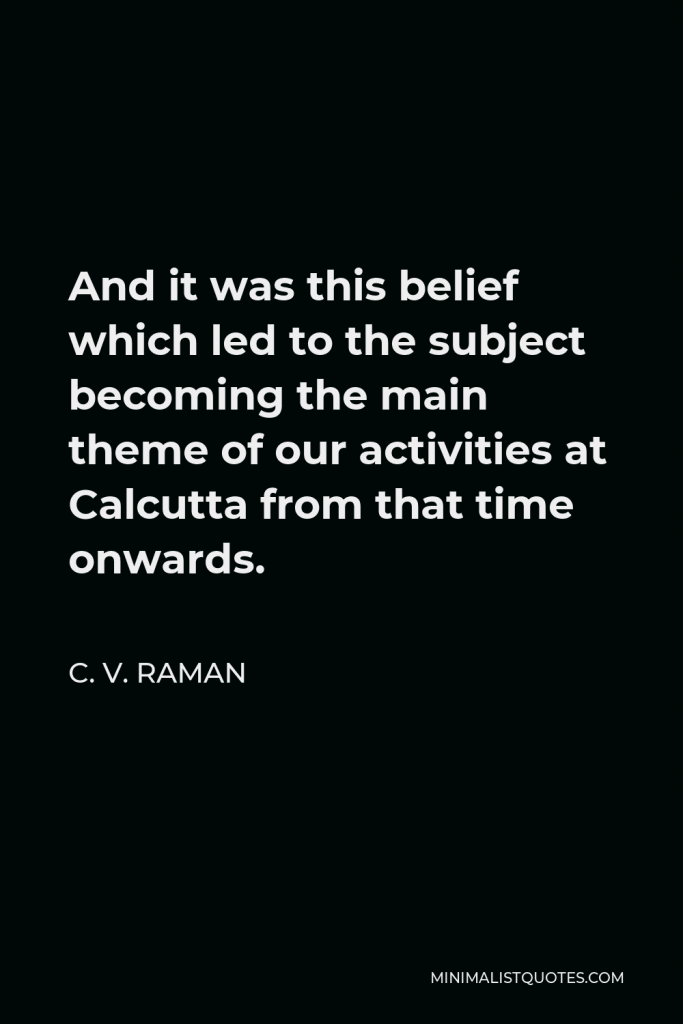

And it was this belief which led to the subject becoming the main theme of our activities at Calcutta from that time onwards.
C. V. RAMAN -





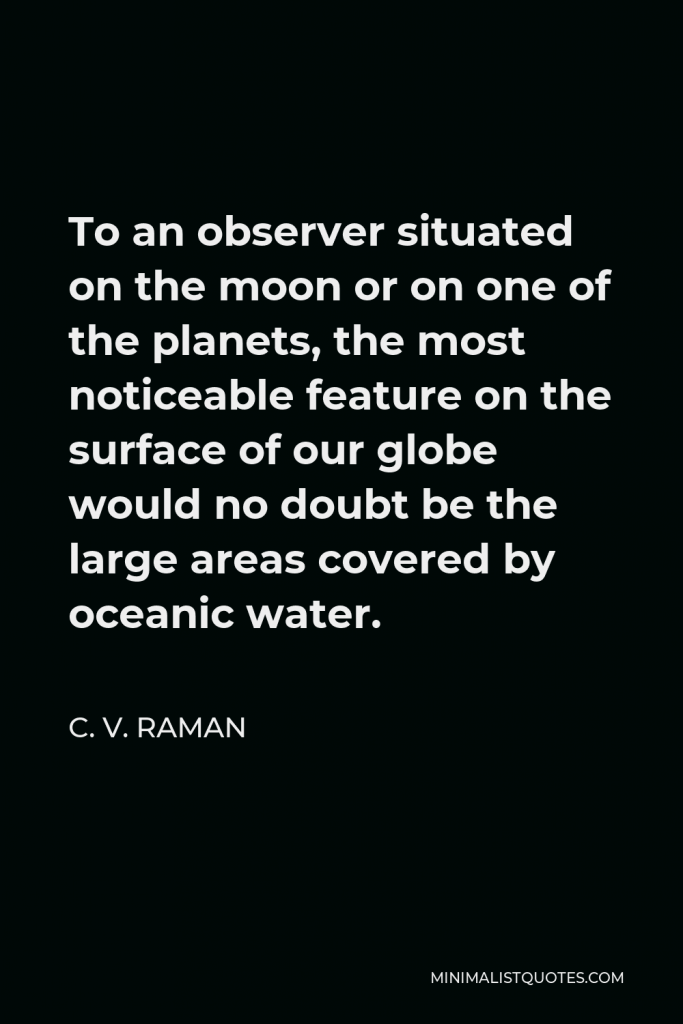

To an observer situated on the moon or on one of the planets, the most noticeable feature on the surface of our globe would no doubt be the large areas covered by oceanic water.
C. V. RAMAN -





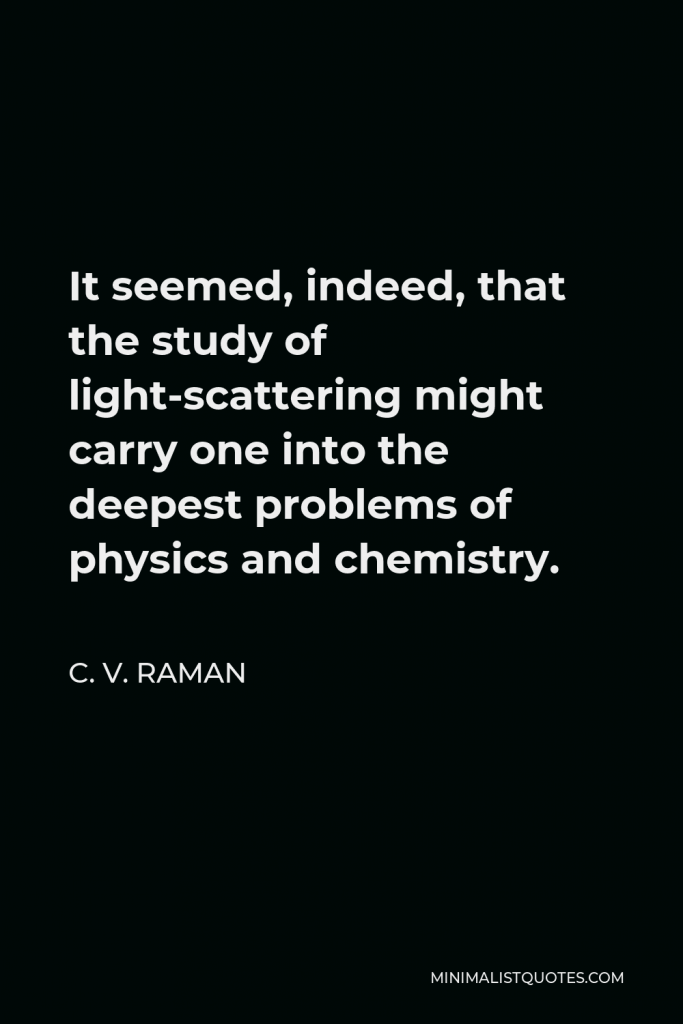

It seemed, indeed, that the study of light-scattering might carry one into the deepest problems of physics and chemistry.
C. V. RAMAN -







The sunlit face of the earth would appear to shine by the light diffused back into space from the land and water-covered areas.
C. V. RAMAN -





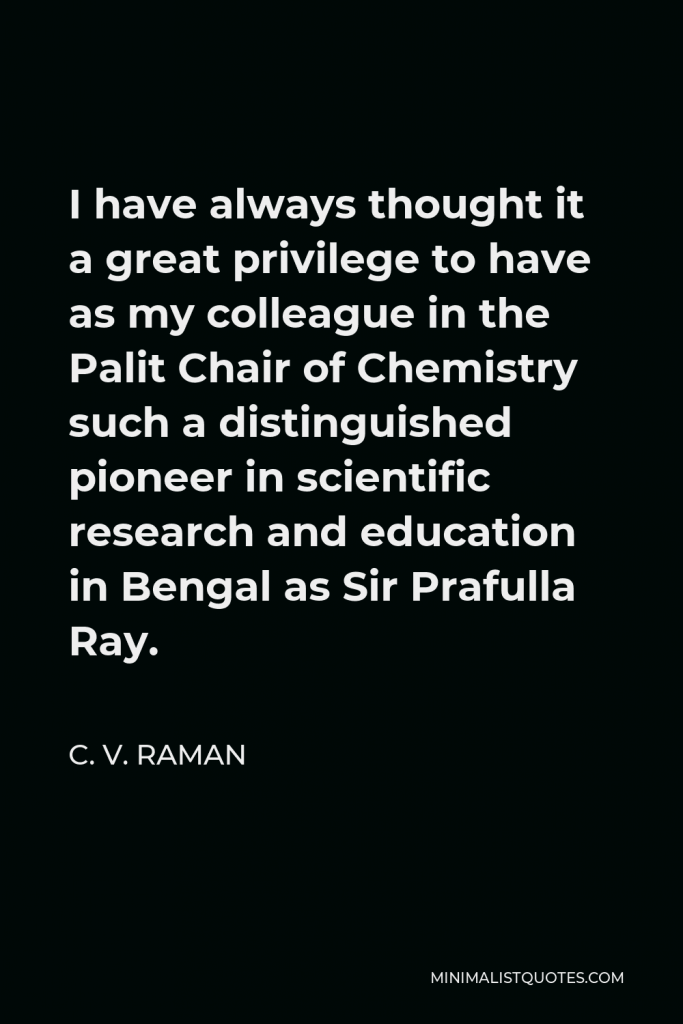

I have always thought it a great privilege to have as my colleague in the Palit Chair of Chemistry such a distinguished pioneer in scientific research and education in Bengal as Sir Prafulla Ray.
C. V. RAMAN -





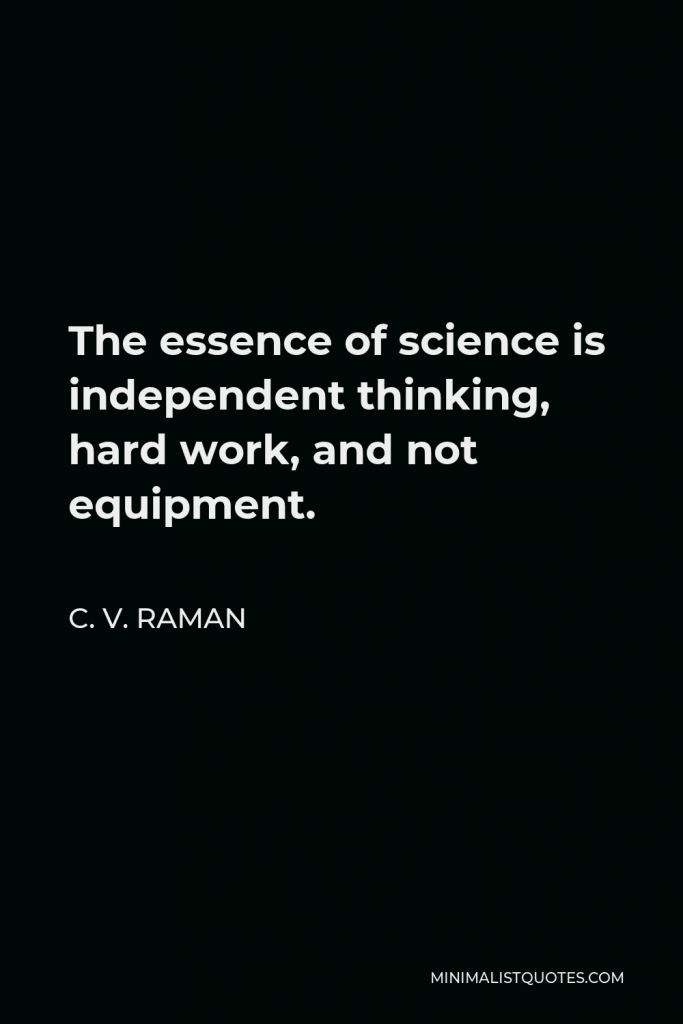

The essence of science is independent thinking, hard work, and not equipment.
C. V. RAMAN -





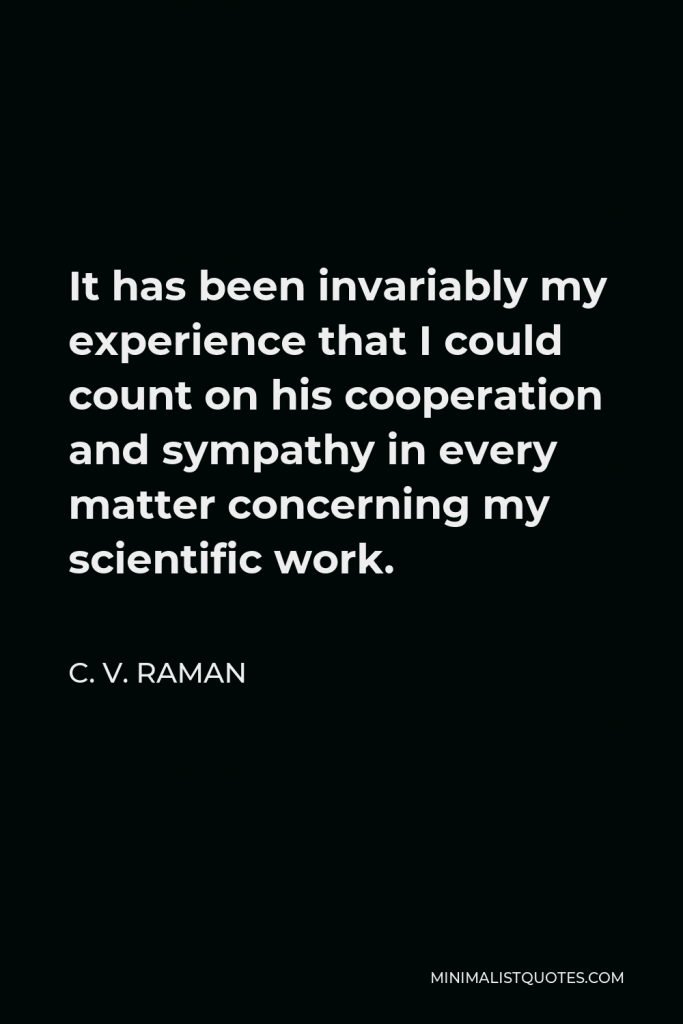

It has been invariably my experience that I could count on his cooperation and sympathy in every matter concerning my scientific work.
C. V. RAMAN -







Is there any more encouraging sign than to see an Indian, who has never been to a university, like our friend Mr. Asutosh Dey here, for example, carrying out original work and finding it recognized by the foremost societies of the world?
C. V. RAMAN -





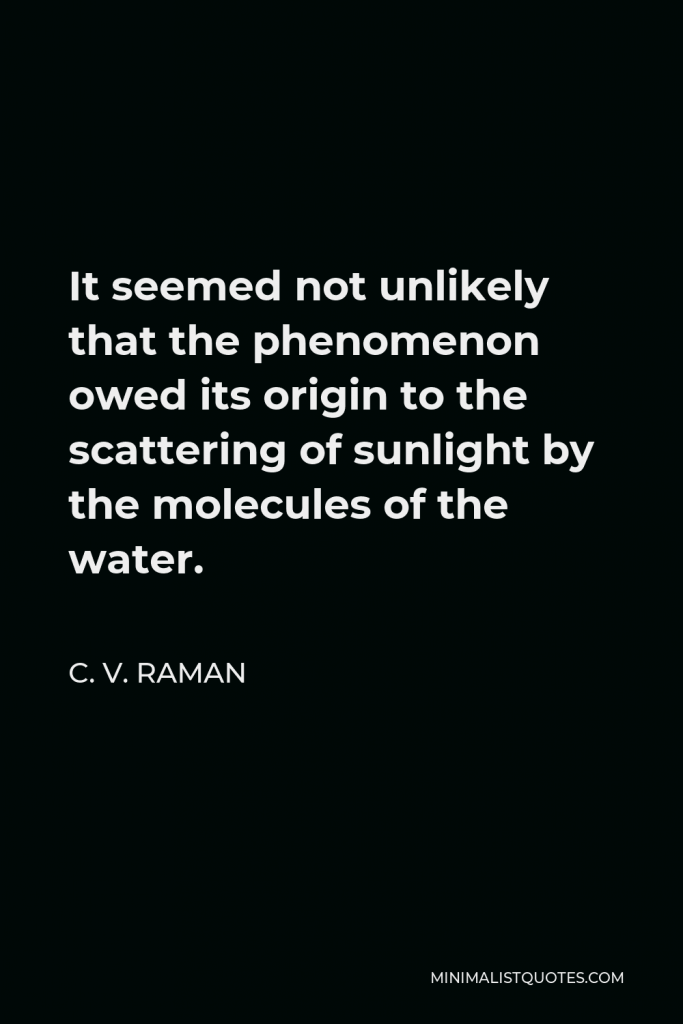

It seemed not unlikely that the phenomenon owed its origin to the scattering of sunlight by the molecules of the water.
C. V. RAMAN -







It is not often that idealism of student days finds adequate opportunity for expression in the later life of manhood.
C. V. RAMAN -





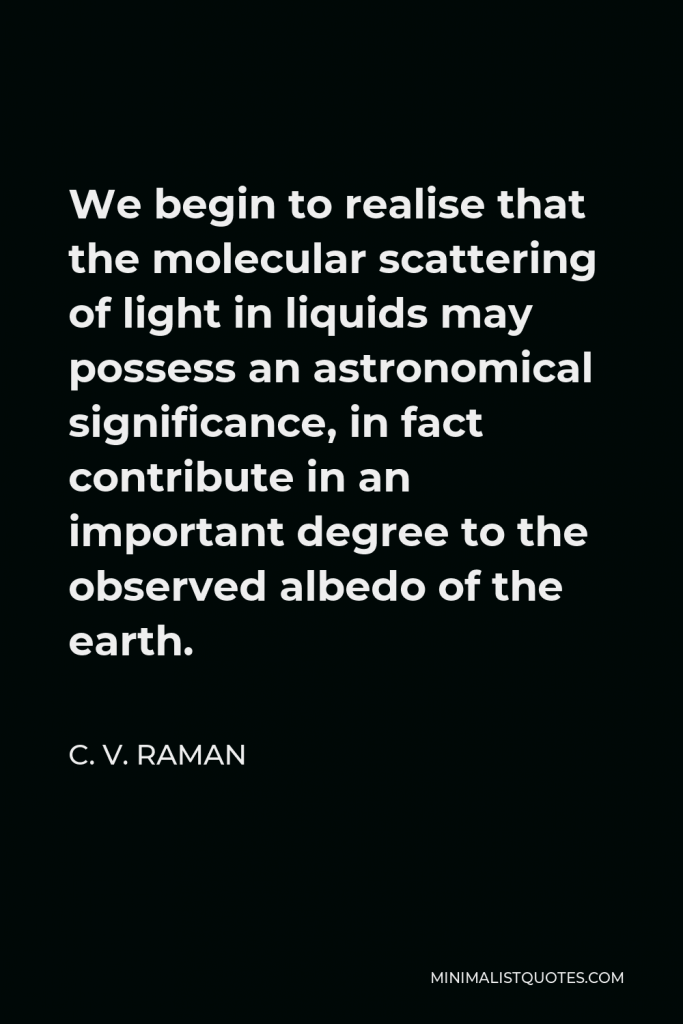

We begin to realise that the molecular scattering of light in liquids may possess an astronomical significance, in fact contribute in an important degree to the observed albedo of the earth.
C. V. RAMAN -





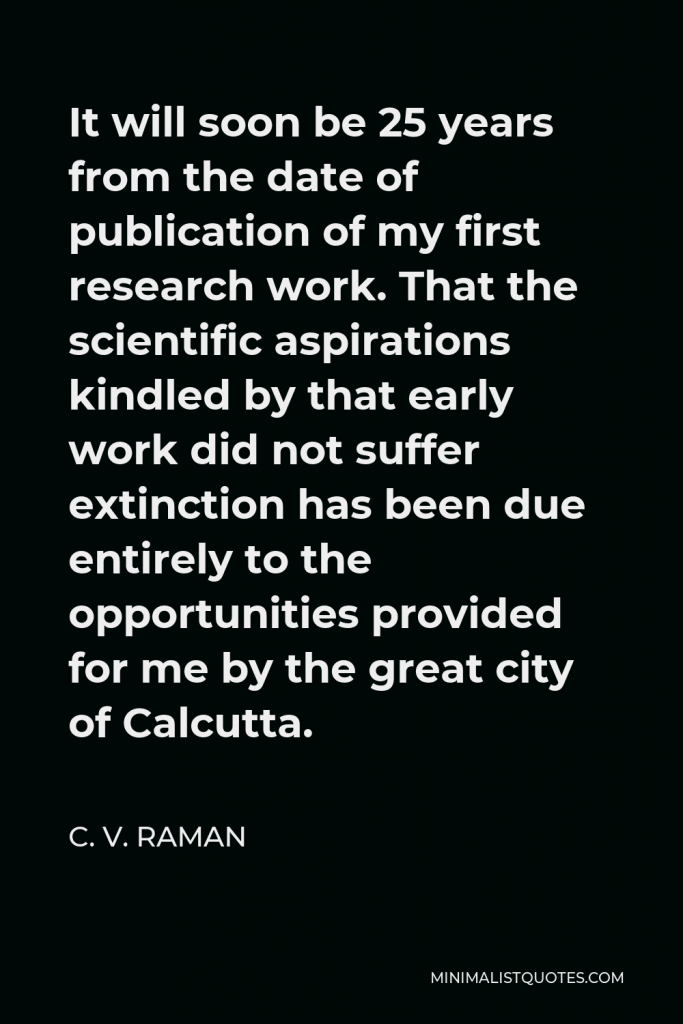

It will soon be 25 years from the date of publication of my first research work. That the scientific aspirations kindled by that early work did not suffer extinction has been due entirely to the opportunities provided for me by the great city of Calcutta.
C. V. RAMAN -







The Sensations of Tone.’ As is well known, this was one of Helmholtz’s masterpieces.
C. V. RAMAN -





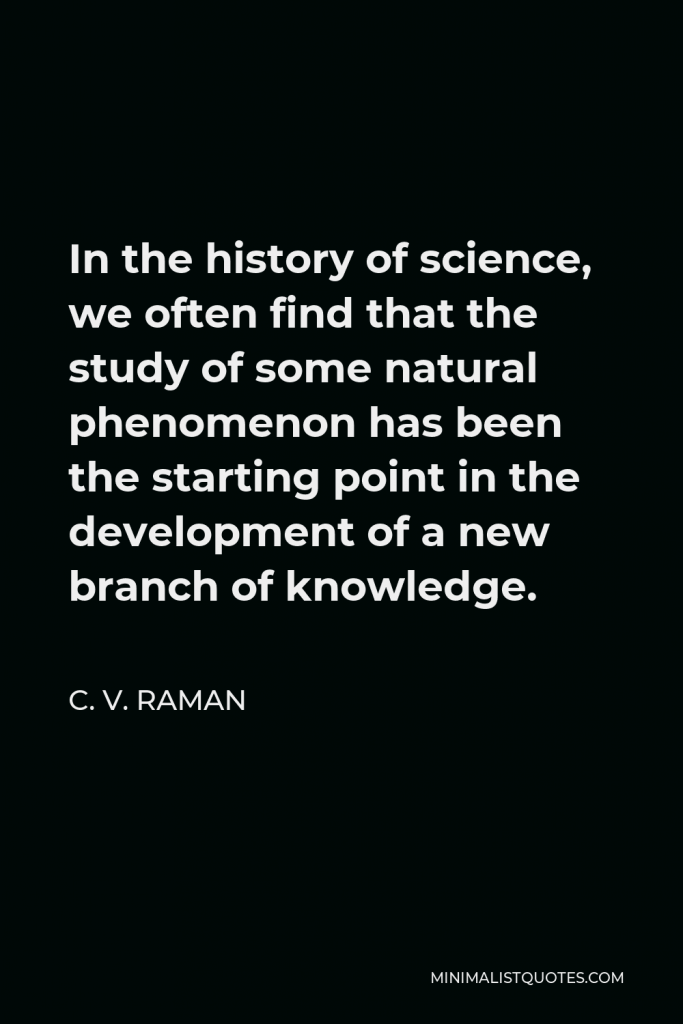

In the history of science, we often find that the study of some natural phenomenon has been the starting point in the development of a new branch of knowledge.
C. V. RAMAN -







In reality, the professor benefits equally by his association with gifted students working under him.
C. V. RAMAN







